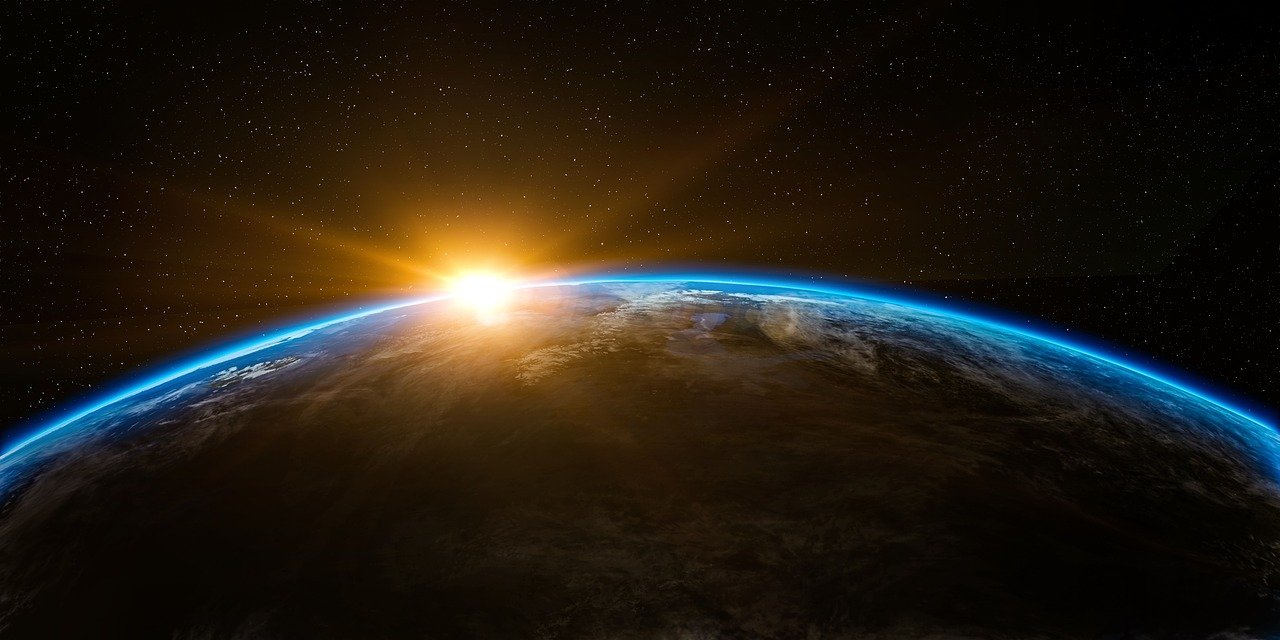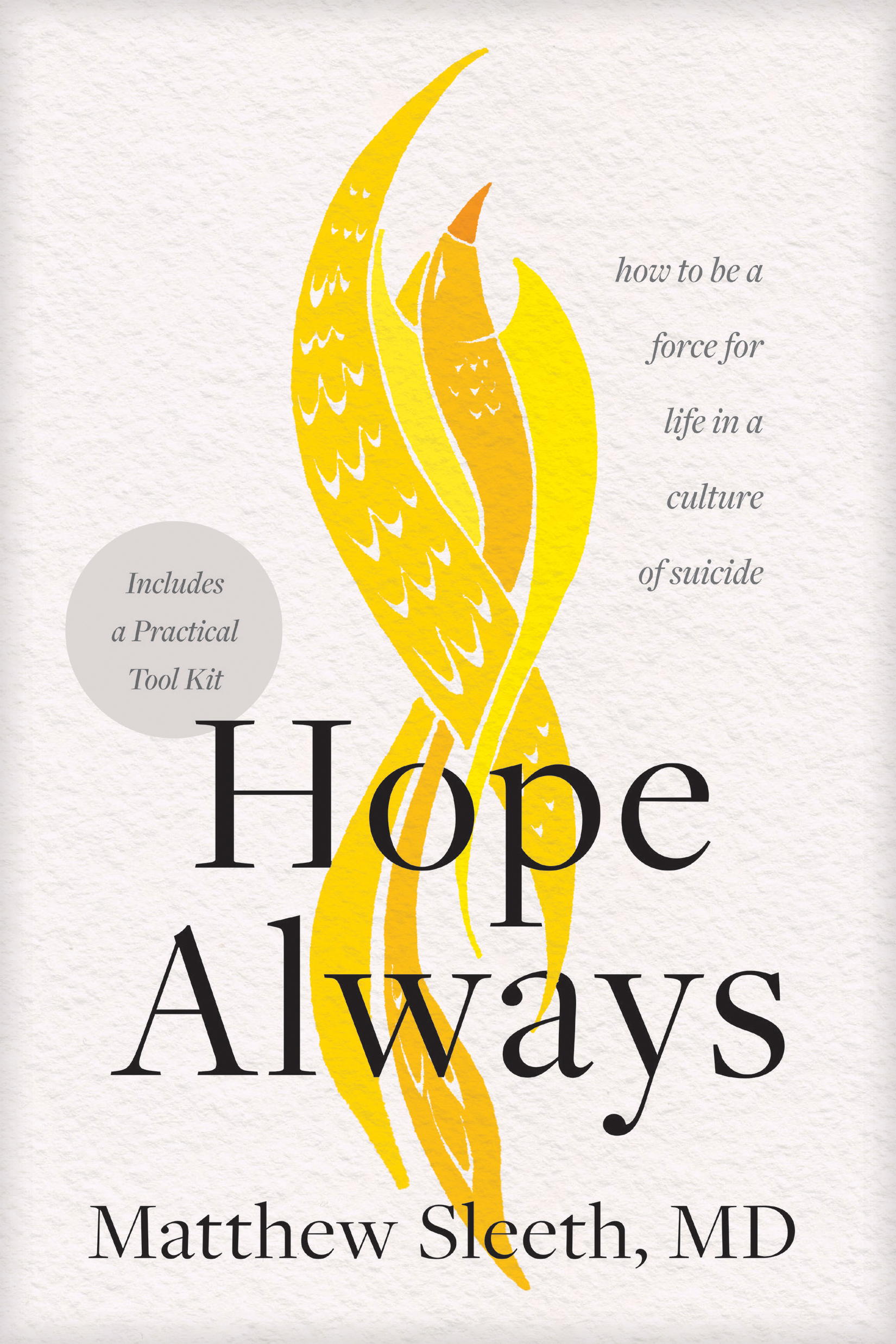We are not mistakes in a vast, seemingly meaningless universe.
By Dr. Matthew Sleeth, adapted from the book Hope Always
Having lived a majority of my life as an atheist, I’m well versed in what people without faith do and don’t believe. For instance, a core belief of atheism is the acceptance that the universe, our planet, and all the life on it came into being by accident. If there is no God, then no God and no plan was ever involved in the creation of anything. The end point of this philosophy is that you and I are the result of a fantastic series of accidents. In short, we are all a cosmic mistake.
This dictum is at the very core of what is taught in modern secular public education. Thus, even without realizing it, the philosophy of atheism and its underlying tenets make their way into most people’s thoughts. From kindergarten through medical school, my secular education taught me that life is common and inevitable. Leave the raw ingredients of the universe lying around long enough and a Shakespeare, Bach, or Newton will inevitably pop out of the primordial ooze.
Add to “you are an accident” the belief that nothing exists after death, and it becomes difficult to make a rational argument to keep going when facing a hard time. “Why am I here?” doesn’t have a compelling answer without God.
It is not just individuals who come up short when they ask what the meaning of life is; society does too. If everything that exists is just the result of a series of random events, then what is the significance of humanity? For that matter, what is the significance of anything? It doesn’t take an advanced degree in psychiatry to understand how “we have no ultimate reason for being” fails to bolster the human spirit.
When I subscribed to the “you are an accident” philosophy, I tended to look for meaning outside the scale of human existence. I was not alone. I read books and listened to people who spoke of both inestimably small and immensely large phenomena. I took inordinate interest in particles so small that the mere act of looking at them scatters them like poppy seeds in a tornado. When leaders of the quest to find the meaning of life in the very small found what they thought was the ultimately irreducible building block of the universe, they unabashedly, if not ironically, dubbed it the “God particle.”

Photo credit: Arek Socha (qimono)
If the infinitesimally small fails to satisfy, one can always switch to the scale of billions and billions. From this macro perspective, we live on a planet that is a mere pale blue dot orbiting an average star roughly two-thirds of the way along a spiral arm of a galaxy. Our galaxy has a quarter of a trillion stars, indistinguishable from the 100 billion other galaxies in the universe that stretch some 100 billion light-years from end to end. In fact, if we walked at five miles an hour, twenty-four hours a day, seven days a week, it would take 575,856,000 years to arrive at the nearest star outside our solar system.
But how does comparing humanity to the tiny scale of angstroms and the immense scale of light-years help us through the dark nights of the soul? The end result of dwelling in the realm of the microscopically small and the incomprehensibly large has been dehumanization.
By contrast, the Christian faith offers a very different perspective on humanity. The Bible is not intended to be used as a science textbook, but it nonetheless offers us some clear direction on cosmology. One example is found in the New Testament book of Hebrews: “By faith we understand that the entire universe was formed at God’s command, that what we now see did not come from anything that can be seen” (11:3).
In other words, the Bible tells us that once there was no universe, and then God spoke the cosmos (the Greek word often used for the universe in the Bible) into existence using nothing that existed before.
Science didn’t agree with the Bible in this area until roughly a century ago. Before that time, scientists insisted that matter could not be created or destroyed and that everything that is seen had always existed. Finally, after thousands of years, the Bible and science are in agreement about the universe being formed out of nothing.
However, there’s still a profound difference between the biblical and scientific view of how we got here. In the biblical worldview, behind every star, every starfish, and every stargazer is an omnipotent God who creates according to a plan. You and I are not the result of a meaningless cosmic accident. We are the result of a divine design.

Photo credit: Daniel Torobekov
The Bible includes two accounts of Creation. The first Creation account begins at Genesis 1:1 and continues to Genesis 2:3. This seven-day account generally follows the developmental pattern of life on Earth that any modern evolutionist would accept. It is told in the measured tone of a song or poem, with the repeated refrain, “And God saw that it was good.”
The first account is linked to the second Creation account with this sentence: “These are the generations of the heavens and the earth when they were created, in the day that the Lord God made the earth and heavens” (Genesis 2:4, ESV). Up to this point, God has spoken everything into existence—in seven days, generations, or an instant. This ambiguity reminds me of the zigzag architects put on a straight line when they wish to signal that the line continues, but NTS, or “not to scale.”
Indeed, the second Creation account switches scale and perspective: God makes Adam and Eve with his own hands and in his own image. He blows the breath of life into Adam’s nostrils. The implication is clear. Adam and Eve are special, outside the timeline and the normal course of the rest of creation. Humanity is the work of God’s own hands.
My aunt could have taught me how I was made up of 37 trillion cells, each of which was made of 100 trillion atoms, which were in turn composed of countless protons, neutrons, and electrons, which in turn were made up of . . . and so on. That knowledge, though true, would not have nourished me as much as telling me I was made by God for a purpose. In short, my great-aunt was the first to tell me clearly and definitively: you are not an accident!
Moreover, you don’t have to choose between science and God, fact and faith. God invented science, and science is just catching up to God. You may read the opening chapters of Genesis to mean seven twenty-four-hour days, an instant, or billions of years, but that does not impact why you are here. What must be taken literally is that we are the intentional masterpieces of an omnipotent God—made in his image. We are not mistakes in a vast, seemingly meaningless universe.
Your life is worth living.
Featured image photo credit: Pexels
You’ve been reading from
Hope Always: How to Be a Force for Life in a Culture of Suicide by Matthew Sleeth, MD
“A much-needed manual for all who attempt to counsel troubled souls battling despair.”
—Bob Russell, Retired Senior Pastor, Southeast Christian Church
Every single day, someone you know is thinking about committing suicide. It isn’t just one or two—ten million Americans will consider killing themselves in the upcoming year. Dr. Matthew Sleeth believes Christians—and our churches—should be the first to offer hope. Are we prepared to do so?
As a physician and minister, Dr. Sleeth shares his personal and professional experiences with depression and suicide, challenging Christians to become part of the solution. With sound medical principles finding their rightful place beside timeless biblical wisdom, Hope Always offers the practical and spiritual tools that
individuals, families, and churches need to help loved ones who are stressed and struggling. In Hope Always, you will find:
- • research-based and scientifically grounded information about the suicide epidemic,
- • biblically based information to start a conversation about the spiritual and emotional battles that so many of us face, and
- • a practical toolkit to consult when a loved one is dealing with suicidal ideation.
After reading Hope Always, you will have the resources at your fingertips to build communities of hope that help save lives!





